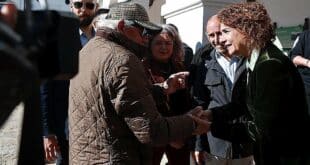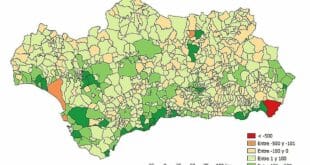A Castilla La Mancha court sentenced a woman in Spain to two years of prison and a fine of 78,643.72 euros for hiding her husband’s demise from the Social Security, his bank, and his heirs in order to collect his pension. She used her position as an authorized person to withdraw cash and make card payments six years after the death of her partner in Ecuador.
The first sentence was handed down by the provincial court in Guadalajara. Now, the regional court of Castilla La Mancha confirms the verdict, declaring BBVA vicariously liable, despite its request to be acquitted.
BBVA was accused by the judges of “total inaction” even though the report did not explicitly state that it had not verified the status of the beneficiary or asked for verification. According to the court the bank didn’t monitor the situation nor ask for assistance from the provincial authorities.
The judges stated that “the defendant’s disposal of the amounts paid to her by the Treasury for retirement pension on the current account (…),, would not have taken place if BBVA had complied the obligations imposed by article 17.5 OMTSS.”
The civil and criminal courts stated, however, that this article did not leave control over the continued existence of beneficiaries solely with the banking institutions that manage the direct depositing of their benefits. It gives the paying entity an option to ask the provincial directorate to require that “all or part of the account holders who receive deposits provide proof of their life”.
The court did not stop there. It concluded that the defendant had continued to use the account (…). The bank is responsible for this, because it failed to notify Social Security at least annually as required by Article 17.5 OMTSS of whether or not the current account owner was still alive. This was the case until February 2021 when the bank notified the entity administering the benefits of its decision to stop paying pensions due to death.
 Costa News Spain Breaking News | English News in Spain.
Costa News Spain Breaking News | English News in Spain.







